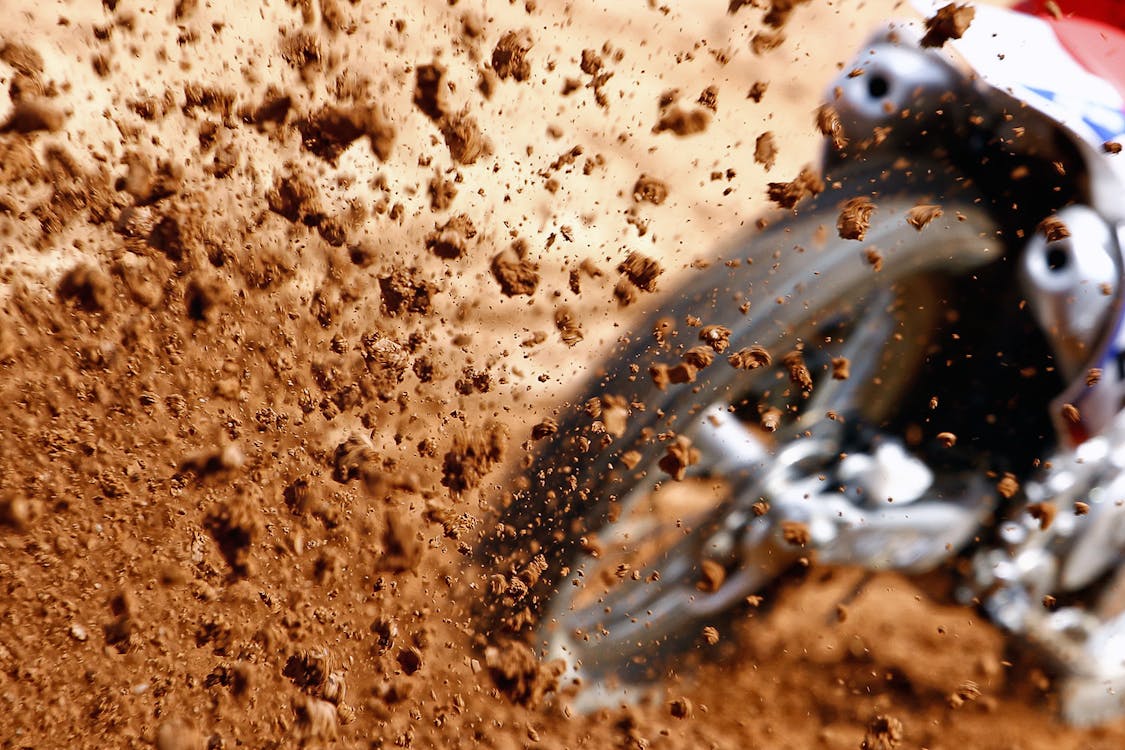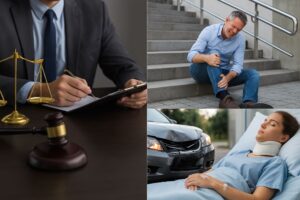Motorcycles are more common than ever before on the roads, both commercial and private. However, as the popularity of motorcycles grows, so does the risk of being involved in a motorcycle accident. Statistics say tens of thousands of motorcycle riders are killed or injured in a crash every year. The lesson to be learned from these figures is that motorcyclists should do everything they can to prepare themselves in the case of a crash.
One of the most important parts of being prepared is understanding what to do if a crash occurs, and in particular, strategies motorcycle riders can use to ensure they gather the right evidence after a motorcycle accident, in order to preserve their right to compensation if they are injured due to the negligence of another motorist or pedestrian.
To begin, it is critical to recognize that the most important thing to do following a motorcycle accident is to make sure that you and everyone else involved are safe. Always seek medical treatment or ask for help from others if you need it. Following that, the second most critical step is to ensure that two major areas of evidence are collected: accident evidence and evidence of damages.

Accident Evidence
Anything that documents the details of an accident is considered accident evidence. Collecting this form of evidence allows for the documentation of the often hazy and complicated events around an accident, in order to determine who carries liability. The following are examples of accident evidence:
- Witnesses:
Gather information from witnesses and individuals involved. If there were any witnesses to the accident, compile a list of their names and contact information. It is also worth noting that the police record from the collision should include this information, but one can’t always rely on a police report to contain all of the necessary details, especially if witnesses have already left the scene by the time police arrive.
- Insurance and Vehicle Information:
It is critical to gather all parties’ insurance information, as well as specifics on their vehicle, such as license plate numbers; the make, model, year, and color of each vehicle; the registration number of each vehicle; and each driver’s license number.
- Property Damage:
Any damaged goods, such as the motorcycle, your helmet, or anything else that can provide valuable information as evidence of impact, should be kept and recorded. Although photographs of the damage to the property are acceptable evidence, if your agent or lawyer requests it, the physical property will help to support your claim or litigation.
- Photographs:
Accident scenes can be easily documented thanks to the cameras on smart phones. Some insurance companies offer consumers mobile apps that allow them to capture accident damage and send it to their claims department. Take images of the accident scene if at all feasible. If you are unable to take images due to an injury, enlist the help of a relative, acquaintance, or even someone you trust who lives nearby. The following are some items you should photograph:
- the scene of the accident
- all damages to the vehicles
- any and all physical injuries
- anything that demonstrates road and/or climate conditions
- the road itself, road signs, and other things that will depict the scene of the accident.
Although a person has the right to take photos in public, it is critical to emphasize that the photos are for insurance or legal purposes if someone tries to stop you from photographing the scene of an accident. If this does not deter someone from meddling, call the cops.
Further, it is also crucial to figure out if there were any surveillance cameras or traffic cameras in the neighborhood that could have captured the accident. If there were surveillance cameras or traffic cameras present, make contact with the owner to ensure the footage of the collision is saved.
- Written Description of the Accident:
After an accident, the amount of information a person must manage and collect can be daunting. If this information becomes too complicated, an attorney examining the case may find it difficult to decide whether a claim even exists and the amount of damages to which the rider may be entitled. As a result, keeping a detailed notebook of everything that transpired at the accident, including your medical injuries, appointments, and expenses, is an excellent plan.
- Police Reports:
Police reports are valuable pieces of evidence, since they come from an official third party who can testify in court, if necessary. People who have been involved in an accident are usually given the report right away. Fortunately, if no report is supplied, a copy can be obtained from the police department that has jurisdiction over the accident. This is part of why it is important to always wait for police to arrive on the scene of an accident, even if it is minor.
Evidence of Damages
The second type of evidence that a person involved in a motorcycle accident should gather is documentation of the damages resulting from the accident. The procedure of gathering this type of evidence is frequently carried out over a long period of time.
In general, an injured party in a motorcycle accident may be entitled to financial compensation for injuries and expenses incurred as a result of another operator’s improper actions. At a bare minimum, an injured motorcyclist may be entitled to the following sorts of compensation:
- Damages are awarded to pay a party for the cost of repairing or replacing their property or for the loss of value of their property.
- Compensation for the cost of medical care incurred as a result of injury.
- Compensation for lost earning capacity (the effect of an accident on current and future wages or loss of earning capacity).
- Compensation for the psychological effects of an accident, commonly referred to as damages for pain and suffering.
A party wounded in a motorcycle accident should gather the following evidence (based on the compensation available):
- Documentation of Medical Treatments: For the purposes of gathering information about the case, it is critical to record all dates of medical treatment, as well as the names of any medical practitioners who treated you. In addition, all bills should be gathered, with a running total showing which costs have been paid by the injured party and which bills have been reimbursed by insurance.
- Proof of Income and Lost Wages: Document all present and future income by collecting pay stubs and tax returns.
- Vehicle Damages Estimates and Repairs: Receipts for repairs, storage, and towing to the repair shop should be kept to document any property damage caused by an accident. Furthermore, receipts for the replacement of damaged property, receipts for rental vehicles, and proof of any recent repairs or enhancements made to your car immediately before the accident are all crucial in determining the value of the vehicle at the time of the accident.
Motorcycle accidents can be very scary and disorienting. However, it is important that you remember to collect evidence if you are physically able to or call someone to help you do so. If you were the victim of a motorcycle accident and believe you could be entitled to compensation for your losses, contact the Law Offices of Kirshner, Groff, and Diaz for the chance to discuss your case right away with real lawyer. This initial consultation carries no obligation to continue with our services.

